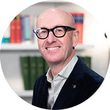- OT
- Life in practice
- Practitioner stories
- Academic inspiration
Academic inspiration
OT speaks to Preeti Bhogal about her experience working as a research fellow and in optometric practice

13 January 2017
What is a typical working day like for you?
Being in research, teaching and working in optometric practice, a working day can vary significantly
My week moves from a full clinic day of sight tests within practice to undertaking hospital-based clinical research, to teaching undergraduate optometry students at Aston University in contact lenses and clinical procedures.
My primary role as a research fellow in ophthalmology at the Queen Elizabeth Hospital in Birmingham involves investigating ocular surface disease and intraocular lens trials and aspects of cataract surgery. A day in the hospital entails pre-operative and post-operative cataract assessments in addition to research measures. Publishing articles and presentations are also wider aspects of my research. Each of my working days differ allowing me to don a different cap of the diverse opportunities in optometry. I love the variety of roles I undertake as, after all, variety is the spice of life.
Which aspect of your current role inspires you the most?
The academic facet of my career fills me with much inspiration. I am fortunate to be involved in the latest research in treating a range of ocular conditions. My links with industry also gives exposure to cutting-edge technology designed to enhance eye care and diagnosis for patients.
I have the privilege of forming investigations using these innovative devices and products on a regular basis. Being a fan of gadgets and technology I relish in experimenting with new instrumentation, in particular biometry and anterior eye imaging. My passion for retaining a healthy ocular surface through ‘friendly’ products is facilitated in my current research.
Ocular surface disease is becoming increasingly prevalent, with its presentation as a chief complaint in clinics increasing also. Rehabilitating the ocular surface is a keen interest of mine and my current role promotes this. I am eager to raise awareness and treatment of ocular surface abnormalities as practitioners observe this daily and have the capacity to manage such conditions.
Where do you see the direction of optometry heading in the next five years?
I see a big movement towards extended clinical services being performed by optometrists in practice, which is already taking effect. Optometrists are highly capable of providing enhanced clinical care for patients. In hospital I have experienced the valuable input that optometrists can provide and feel it is a direction that should be supported in High Street practice.
The birth of services such as Minor Eye Care Services (MECS) and Primary Eye-care Assessment and Referral Service (PEARS) are already guiding optometrists to such extended roles and I feel this will have a positive impact on our profession. It is important to come together to make this successful. I also envisage more independent prescribers as we deal with more specialised ocular abnormalities.
What do you regard as being the most influential development to impact upon the clinical role of practitioners in recent years?
The introduction of enhanced services, shared care schemes and additional prescribing rights have vastly impacted the opportunities available. In combination with the extended clinical roles and shared care schemes, I feel improved instrumentation is now also showing a great presence in our consulting rooms. Equipping practices with novel devices such as optical coherence tomography and digital slit lamps support treatment by involving patients through visual aids. Educating patients on good ocular health can increase compliance as well as loyalty to practices. Tapping into these areas can help create a niche for specialised clinics and may even open up new business ventures for optometric practices.
Who and what has been most influential in steering your career path?
I am privileged to have worked with many renowned academics and researchers throughout my career. I am ever grateful to Professor James Wolffsohn, who I continue to work with, in supporting my research path since the supervision of my doctorate. I am also grateful to my colleagues: consultant opthalmologists Sai Kolli, Alastair Denniston and Professor Christine Purslow, who continue to inspire me on a daily basis and fulfill me with invaluable knowledge.
Being part of an enthusiastic research team at Aston University for some years has helped mould my work ethic and my pursuit for channeling research into provisions for better eye care. Lastly, but certainly not the least, my family have been the greatest encouragers of my chosen career path and continue to support my various career voyages.
If you had the power to change any aspect of the current remit of optometrists what would it be?
I would like to change the perception of optometrists as ‘spectacles salespeople’ and promote our clinical abilities. The general public is poorly educated on our roles in primary eye care. I often find patients with mild ocular ailments seek the opinion of their GP before considering an optometrist.
The value of our work should be better appreciated and showcased in order to improve the understanding of our role to patients. Moreover, the NHS is already stretched in providing eye care services and optometrists can certainly help lift that burden.
Working together as a profession and enhancing our own capabilities through MECS, PEARS and independent prescribing will encourage changes to the current state of eye care and transform our careers.
Advertisement


Comments (0)
You must be logged in to join the discussion. Log in